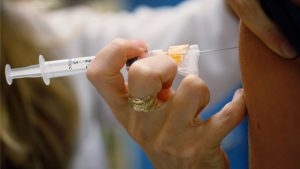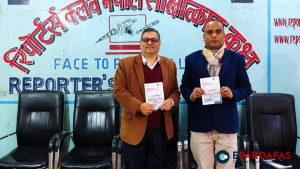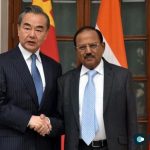
Exclusive breastfeeding recommended in first 6 months of birth

By Sharad Sharma, Kathmandu, Aug 1: The World Breastfeeding Week (BFW) 2023 has commenced including in Nepal from today. The Week is celebrated in the first week of August (August 1-7) in commemoration of the 1990 Innocenti Declaration.
This year it is observed with the theme of “Let’s make breastfeeding and work, work!”
Mothers, majorly those working ones, face challenges to breastfeed their children regularly due to compulsion to get back to work.
The Ministry of Health and Population says it is the responsibility of all to create and ease a situation in the workforce so that mothers could continue breastfeeding their babies.
Ministry joint spokesperson Dr Samir Kumar Adhikari said the child is recommended for breastfeeding within one hour of the birth. Mother’s milk is capable of providing multiple nutrients to the child and the baby is recommended exclusive breastfeeding in the first 6 months of life.
In Nepal, still, 45 per cent of new born babies are not provided their mother’s milk within an hour of the birth. According to the Demographic and Health Survey 2022, only 55 per cent of children are breastfed within the hour of birth.
Six infants, out of ten, are exclusively breastfed during the first two days of birth.
Paropakar Maternity and Women’s Hospital director Dr Shree Prasad Adhikari said in recent times, the number of mothers regularly breastfeeding their children has relatively decreased.
Some mothers are not aware of the vitality of breastfeeding while working women face time constraints to observe it, according to Adhikari. Mother’s milk is an immunity booster for the child.
The Demographic and Health Survey 2022 shows that only 56 per cent of children under six months of age are exclusively breastfed in Nepal and as per the 2016 survey report, two-thirds of the children (66%) under age 6 months were exclusively breastfed.
As doctors say, breast milk contains colostrum, which is highly nutritious and contains antibodies to protect the newborn from disease.
According to Hospital child specialist Dr Kalpana Upadhyay Subedi, the declining number of infants receiving exclusive mothers’ milk under the age of 6 months can be attributed to a lack of breastfeeding facilities at workplaces and offices. “As more women are joining the workforce, the absence of breastfeeding chambers becomes a significant barrier to breastfeeding.”
Besides this, the increasing use of formula milk is also contributing to the decline in breastfeeding practices, she adds.
The doctor stressed the need of increasing public awareness and ensuring the breastfeeding room in each working stations to promote breastfeeding practice. “Breastfeeding is highly beneficial for bother mother and the child. Mother’s milk is of a high nutritious value and it protects the child against hypertension and diabetes. It additionally helps protect the mother from post-partum bleeding, depression and ovarian and breast cancer.”
Medically, the child is recommended for complementary feeding only after six months of life and extended breastfeeding is advised at least until the child completes two years of age.












Comments